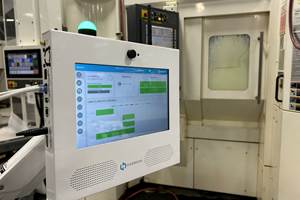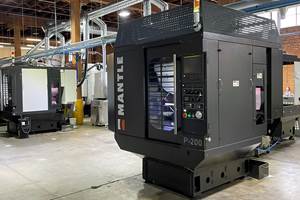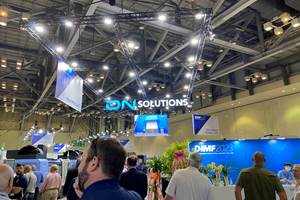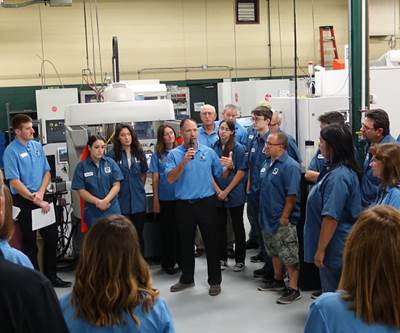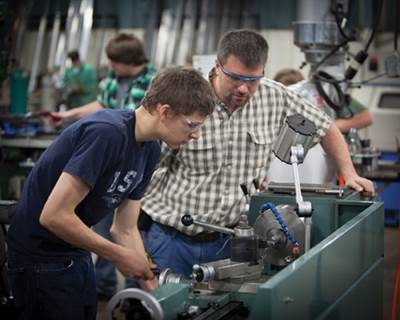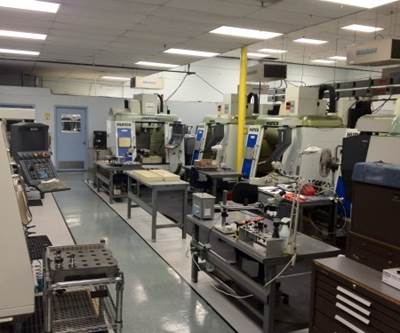Leadership Training Helps Spur Top Shop’s Growth
Rosenberger N.A. has grown tremendously over the last eight years. Part of the reason is its commitment to ongoing employee leadership training.
Share





Last month, I mentioned I’d devote my January through September One-Off columns this year to reconnecting with former Top Shops Honors Program winners from each of the last nine benchmarking surveys. Since Ted Toth suggested the idea of reaching out to previous winners a while back, I contacted him for this month’s column.
Formerly Toth Technologies, his 2012 winning shop was acquired by its customer that year — Rosenberger North America, a manufacturer of radio frequency connectors and related components and assemblies. “Since 2012, I have transitioned from president of Toth Technologies to senior technical advisor for Rosenberger N.A,” Mr. Toth explains. “I am now the idea guy, searching for ways to improve and add or subtract processes to increase productivity. And now that we’re part of this larger company, we have had the support to make bigger investments in new equipment and capabilities. For example, we have quadrupled our Swiss machining department, updated or replaced most of our older CNC mills, added HMCs with pallet changers and invested in five-axis equipment. We now have more than 50 CNC machines at our Pennsauken, New Jersey, facility.”
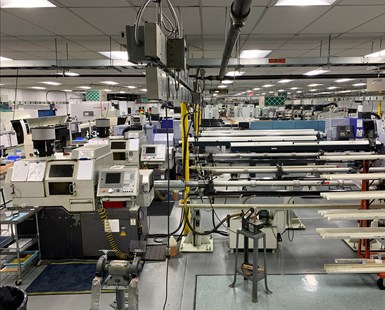
The company’s Swiss machining area has expanded from three machines in 2012 to 20 in 2019.
Joel Antipuna, general manager of the Pennsauken operation (the company also has a facility in Akron, Pennsylvania), says annual sales have grown 215% since 2012. In addition, the number of employees has increased from 30 to 80. But Mr. Antipuna notes that beyond increasing its headcount, investing in its employees’ capabilities and confidence, particularly by providing leadership training, has helped spur company growth.
“Our extensive leadership training is key to our current and future success,” he says. “The goal is to promote from within before looking outside of our organization, and this is only possible by having an empowered, well-trained team.”
Rosenberger N.A. launched its leadership training program in 2014, led by its then National Sales Manager Frank Zaccardo. Mr. Zaccardo had employed leadership training for the company’s sales force, and he and Mr. Antipuna recognized the value of offering this type of training to production employees as well. Unlike training for a specific task, leadership training would benefit employees both professionally and personally, giving them the confidence to effectively engage with others to meet any type of challenge they might face.
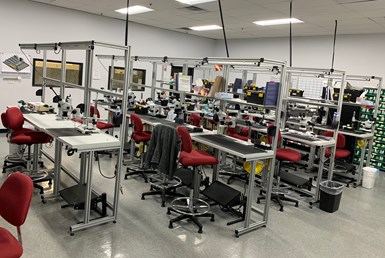
Its hermetic assembly stations have increased from three in 2012 to 16 in 2019.
The program is based in part on concepts John Maxwell presents in his book “The 21 Irrefutable Laws of Leadership,” and takes employees through multiple leadership levels. Mr. Zaccardo mentors weekly classes of employees at the company’s Akron and Pennsauken facilities, and these employees are assigned projects to complete on their own time. He has since retired from Rosenberger N.A., starting his own counseling company, Zaccardo and Associates, in Plano, Texas. He works primarily with Rosenberger N.A., and mentors classes (and offers custom training for those identified as fast-trackers) via Skype.
Mr. Zaccardo says there are a few keys to succeeding with this type of training program. One is to integrate real-world issues employees are currently facing into class discussions. “A given weekly lesson might break down one of Mr. Maxwell’s 21 laws, but we encourage employees to present examples of challenges they’re facing with respect to that lesson and open it up to class discussion,” he explains.
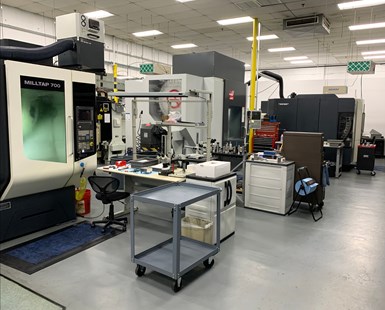
Rosenberger N.A.’s milling capabilities now include five-axis machines and HMCs.
In addition, classes should be kept small. “With big groups, a few people might dominate the discussion,” Mr. Zaccardo says. “That is less likely to happen with small groups.” Initally, 10 employees comprised the class at Rosenberger N.A., but class sizes now range from four to six, leading to greater interaction and input from all.
Finally, leadership training should be ongoing. He notes that occasional workshops are helpful, but employees are not likely to retain lessons learned if they’re not continuously revisiting and applying them.
To date, 30 Rosenberger N.A. employees have been involved in its leadership training program. Not only has this enabled the manufacturer to promote from within, but it has proven to be an enticement for potential new hires as they can see how the company fosters employee growth and provides clear career pathways.
It seems shops could find it tricky to identify tangible results of leadership development compared to conventional skills training, in which it is easily discernable if a person can perform a new task or not. That said, results from past Top Shops surveys have consistently shown that the most successful of U.S. machine shops employ leadership training programs compared to lower-performing operations. Although the return on investment with this type of training might not be so clear-cut, leading shops like Rosenberger N.A. recognize that the investment pays off.
Related Content
How I Made It: Amy Skrzypczak, CNC Machinist, Westminster Tool
At just 28 years old, Amy Skrzypczak is already logging her ninth year as a CNC machinist. While during high school Skrzypczak may not have guessed that she’d soon be running an electrical discharge machining (EDM) department, after attending her local community college she found a home among the “misfits” at Westminster Tool. Today, she oversees the company’s wire EDM operations and feels grateful to have avoided more well-worn career paths.
Read MoreCan Connecting ERP to Machine Tool Monitoring Address the Workforce Challenge?
It can if RFID tags are added. Here is how this startup sees a local Internet of Things aiding CNC machine shops.
Read MoreIn Moldmaking, Mantle Process Addresses Lead Time and Talent Pool
A new process delivered through what looks like a standard machining center promises to streamline machining of injection mold cores and cavities and even answer the declining availability of toolmakers.
Read MoreDN Solutions Responds to Labor Shortages, Reshoring, the Automotive Industry and More
At its first in-person DIMF since 2019, DN Solutions showcased a range of new technologies, from automation to machine tools to software. President WJ Kim explains how these products are responses to changes within the company and the manufacturing industry as a whole.
Read MoreRead Next
For This Mold Shop, the Key to Closing the Skills Gap is Emotional Intelligence
Thanks to a culture change founded on a commitment to emotional intelligence, this mold supplier solved its skilled labor problem and increased throughput per employee.
Read MoreDoes This School Have the Formula for Mfg Education?
A high school in Wisconsin runs its manufacturing vocational program as a business. Students make parts for paying customers. The program is thriving, cash flow is strong, and local manufacturers can now hire recent graduates who already have experience in meeting customer demands.
Read MoreTop Shops 2012: Toth Technologies
Because this multi-niche shop does more than precision machining, management refers to it as a “Manufacturing Technology Center,” not a “shop.”
Read More



















.jpg;maxWidth=300;quality=90)








